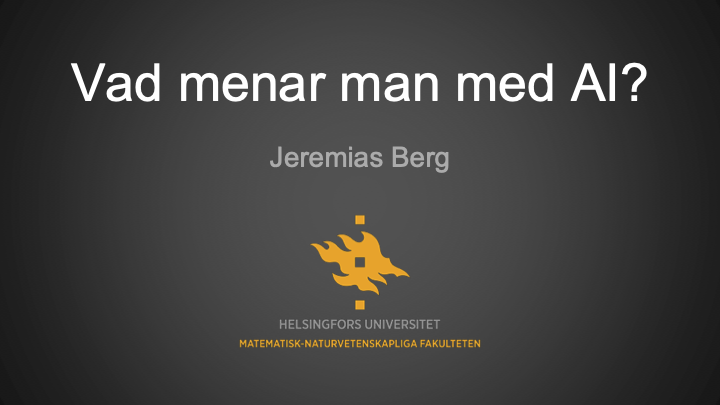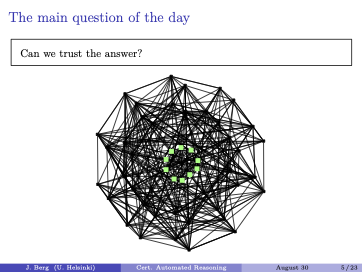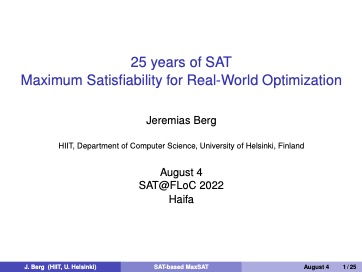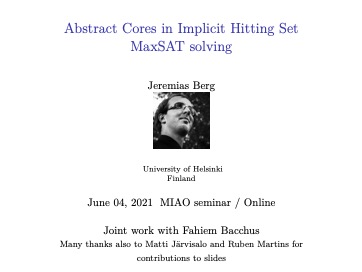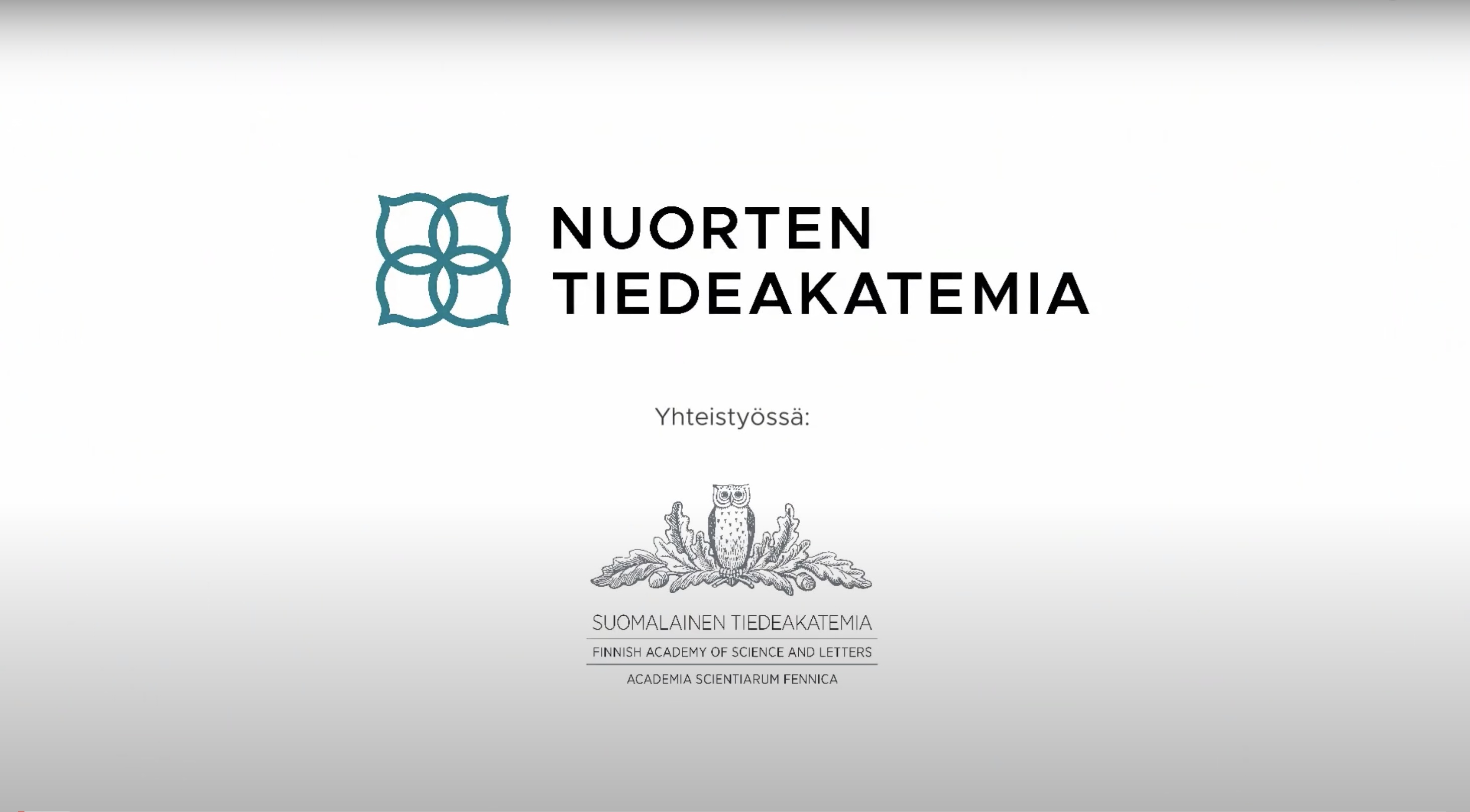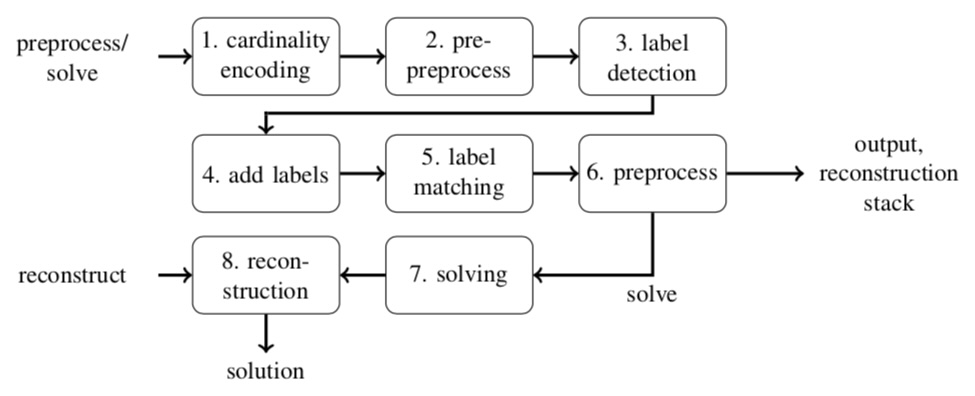presentations
presentations for individual papers are not included here, they can be found on the publication page.
2025
2024
2023
-
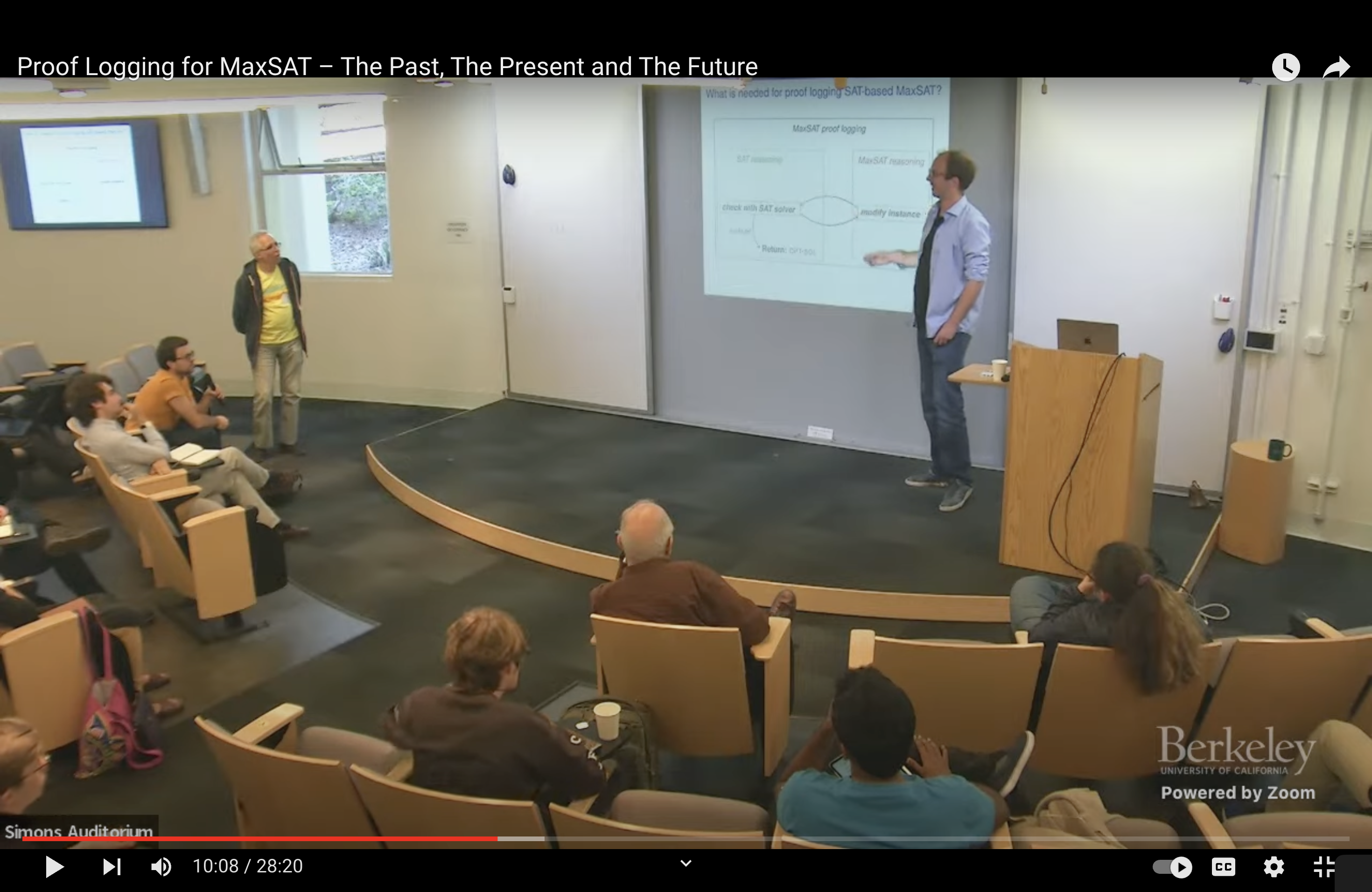 Proof Logging for Maximum Satisfiability the past, the present, the futureMar 2023
Proof Logging for Maximum Satisfiability the past, the present, the futureMar 2023
2022
2021
2020
-
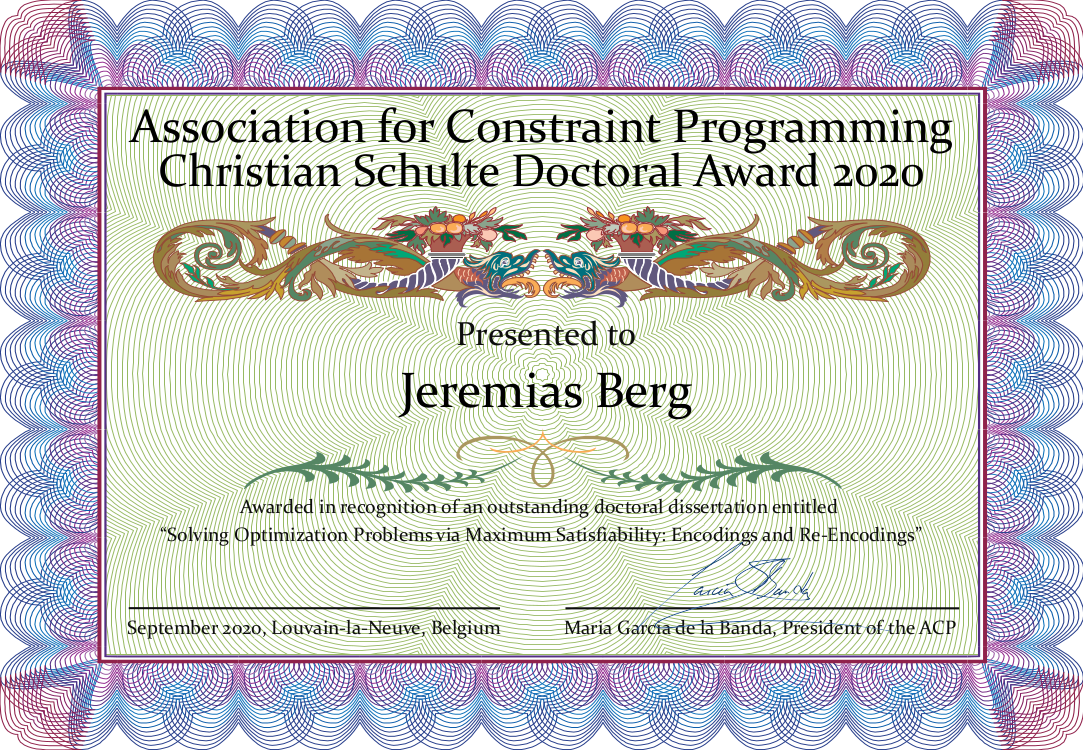 Solving Optimization Problems via Maximum Satisfiability: Encodings and Re-EncodingsSep 2020
Solving Optimization Problems via Maximum Satisfiability: Encodings and Re-EncodingsSep 2020
